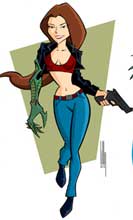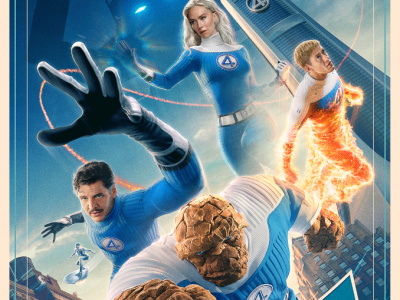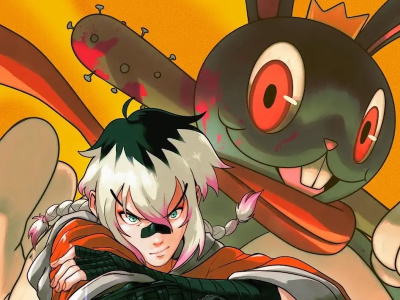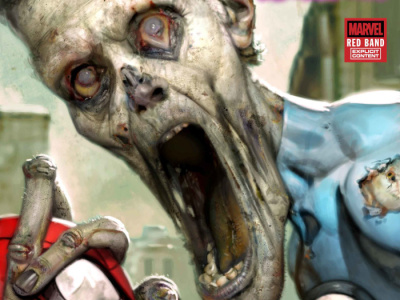
In one of the more interesting collaborations between a collector-oriented toy company and a comic book publisher, Palisades Marketing and Top Cow Productions have joined forces to create a line of Witchblade Animated Toys as well as a Witchblade Animated comic book. The only thing that takes this story out of the ordinary is the fact that, at least for right now, there is no Witchblade Animated cartoon series. ICv2 has been fascinated by this strategy, so we spoke to the principals involved, Michael Horn, CEO of Palisades, and Matt Hawkins of Top Cow to get the skinny on how this remarkable project got off the ground. In the process we learned of a remarkable alliance between two medium-sized companies, which are working together and in effect sharing intellectual property in a way that is far different from traditional licensing arrangements.
Tell me, who came up with the concept for Witchblade Animated, was it Top Cow or Palisades?
Matt Hawkins: It was Palisades actually, they sort of pitched it to me as a possible new category -- and I must say through their efforts they sort of spawned a new division for us, which was nice -- thanks Mike.
Mike Horn: No problem, anytime. But realistically what happened is that this whole process just comes out of a long-term relationship with these guys. We've all known each other for a long time, though we'd never really done a lot together. We wanted to, but we never really found a project that made sense. Eventually last summer, when we were kicking around ideas for things we could do together -- it was really Ken Lilly, my director of product development, who suggested what if we take their existing characters and interpret them in a Justice League or Batman Animated style.
Matt Hawkins: We needed a new approach because there had been four different lines of action figures, and four or five different statues, and three or four mini-busts, and a couple of full size busts, of the Witchblade characters interpreted in the Clay Moore or other styles. There was already a large quantity of that product out there, so when these guys came up with this idea, we were looking to do something new and different rather than just throw out another Witchblade action figure into the marketplace. When they pitched it to me, I started thinking that this was something we had never pursued. Before I joined Top Cow I think they pursued the idea of Cyberforce as an animated series in the 90s, but I think they had a bit of a bad taste in their mouths, because of the way the whole process happened, so they gave up on animation and started pursuing film and television deals -- live action stuff. We've gotta a couple of years now when we're not able to do anything live action with Witchblade, because Warner Brothers still has the rights, but we can do something with animation and get the ball rolling with that. So this has become a true Top Cow/Palisades collaboration and I'm really excited about it.
Since the Witchblade project has been percolating for a little over a year now, we have actually started working on joint venture projects in which Palisades and Top Cow will co-create and co-own original IP (intellectual property) content that will be jointly exploited for film, TV, comics, toys. There's a market out there for doing things like this, but these projects get harder to do because there are not a lot of companies out there doing projects for the direct market, without major film or TV tie-ins. Palisades also knows how to go out and get the stuff into the Musiclands and Hot Topic.
Mike, why did you guys choose Witchblade for this treatment out of all the Top Cow properties?
Mike Horn: Really the toys are based on the family of Top Cow properties -- we are positioning it under the Witchblade brand, because that's a great brand with a great track record, so that's how we're positioning it. For us it seemed like a good jumping-on place -- it's a brand that is well recognized, well established, we don't have to explain it to anybody -- and the look of the characters just lends itself to this sort of treatment.
Matt Hawkins: If you look at the assortment, it's actually Witchblade, The Darkness, and Magdalena, so it's pretty much our three major franchises. We're just calling it Witchblade Animated, because Witchblade is the best known brand. What we did after the project got going -- and this was cool, it was something that Jim McGloughlin actually did for Top Cow -- since we had talked about having a comic book come out right around the time the toys came out -- he went out and brought in Paul Dini and a team that included David Bullock, Darwin Cook, and a guy named Jay-Bone, who were all guys with extensive backgrounds in animation.
Matt, given the lack of American-made cartoons featuring females in leading roles in action/adventure material, have you been shopping Witchblade Animated around Hollywood -- and if so, where do you see it ending up, on Saturday morning or perhaps in a more adult-oriented time slot?
Matt Hawkins: We have not yet, the reason being that we are waiting for Paul to get the comic together, because one of the other things that we have talked to Paul and his agent about is attaching Paul as a producer to the project and taking it out and selling it because then we know we'll sell it almost immediately because we've got this triple Emmy Award-winning animation guy, who has co-developed two or three of the really successful TV animation series out there. We want to go out there with Paul attached as a writer and a producer and we're real confident were going to get some sort of a deal. Whether we're going to pursue Saturday morning on ABC or whether we're going to go for MTV or Comedy Central -- it depends on whether it has more of an adult feel or is shot for children. I don't know whether we've defined that yet -- I defer to Paul Dini on that. From the conversations I've had with Paul, I think we will try to skew it more for all audiences, which would mean that the cartoon would be a little scaled down from some of the risque stuff we're doing in the comic book -- not kiddie stuff, but more like live action TV series, which by the way, really moved a lot of trade paperbacks for us. We don't want to pigeonhole ourselves now. We want Paul to develop a story bible and take it out and see what the best route to go will be.
Will the release of the toys and the comic book be synchronized?
Matt Hawkins: Yes, the toys and the comics will be released together -- I believe we are debuting them all at Wizard World-Chicago this summer.
Mike Horn: Yes, we are planning to have a world premiere, so to speak, there at that event.
Matt Hawkins: I believe the show opens on Wednesday, so I think the toys and comics will be arrive in stores on that corresponding week.
Mike, are you planning a second series of toys'
Mike Horn: We are cautiously optimistic -- we always have plans for two or three series, but it really depends on the sales.
Matt Hawkins: I think a lot of it depends on Paul. If we do go forward with Paul and get an animated series, then clearly we'd want to coordinate additional product releases at various stages. It's an initiative for us. I think all of us have the intent of making it a major initiative, but if this one doesn't work, we will try something different. If we do manage to place the series, Palisades will get a piece of the action -- not the same deal that they will get on the stuff we are developing together, since we've already been working on Witchblade for 8 years -- but something nonetheless.
To your knowledge, has this ever been done before, where you have animated figures based on a property from another medium that has yet to be animated? Is this the first?
Matt Hawkins: To my knowledge it is.
What market are you targeting with Witchblade Animated?
Matt Hawkins: I think our greatest support is going to come from the direct market. This is a direct market venture.
Mike Horn: Yes, the direct market, and for lack of a better term the specialty market, where we can sell it to some of the mall stores. I certainly don't study it intently, but my impression is that comic shops and the most basic mall stores don't view themselves as competitors in the truest sense, given the number of shared exclusives that come out between say a Musicland and a Diamond.
Matt Hawkins: I think the whole project was conceived from the get-go, not to eliminate risk entirely, but so that we wouldn't have to sell a bazillion units to make any money. It is a direct market product. We know that just going into that space, pushing it at conventions, selling it through the direct market comic book stores, we can probably make a little money, and anything in the mass market is just helpful beyond that.
Mike Horn: It's a branding exercise for us to establish the viability of comics and toys, kind of existing symbiotically in this marketing world.
Matt Hawkins: I think one of the more interesting things about the whole concept of this project is, given the sort of shrinking area of the direct market and some of the industry changes that have happened over time, I think you are going to see more and more of this kind of thing happening, where you have different companies, particularly if you are not Marvel or DC or Mattel or Hasbro -- you're going to see more and more of these sorts of collaborations happening, and I think they will happen between comic book and video game companies, etc. It's just not that simple anymore for a toy company or a video game company to go out and create and really exploit something on a license alone. I been doing this for over eleven years now, and in the last 3 years I've noticed that toy and videogame companies are not really interested in licensing anymore, they're more interested in creating and owing their own IP.









